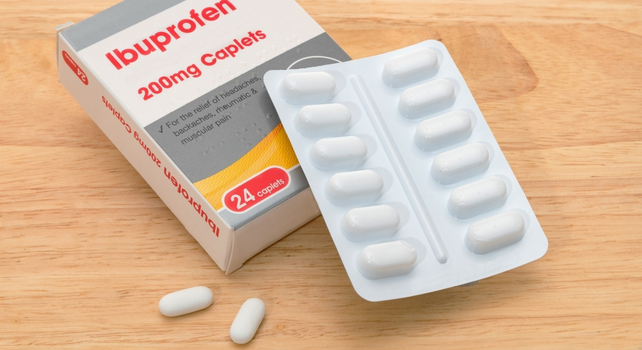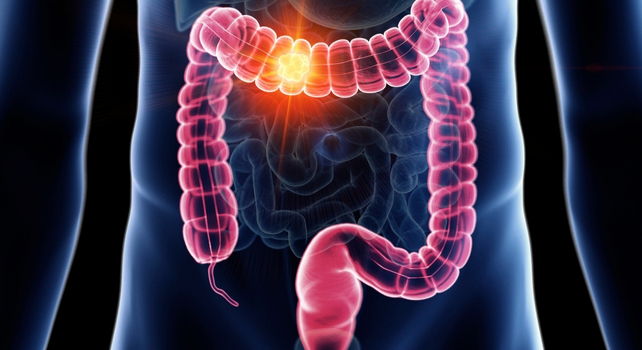Ibuprofen is a household name – the go-to remedy for everything from headaches to period pain.
But recent research suggests this everyday drug might be doing more than easing discomfort. It could also have anti- cancer properties.
As scientists uncover more about the links between inflammation and cancer, ibuprofen's role is coming under the spotlight – raising intriguing questions about how something so familiar might offer unexpected protection.
Related: Cancer Vaccine Blocks Multiple Tumors in Mice For 250 Days
Ibuprofen belongs to the non-steroidal anti-inflammatory drugs (NSAIDs) family. The connection between NSAIDs and cancer prevention isn't new: as far back as 1983, clinical evidence linked sulindac – an older prescription NSAID similar to ibuprofen – to a reduced incidence of colon cancer in certain patients.
Since then, researchers have been investigating whether these drugs could help prevent or slow other cancers too.

NSAIDs work by blocking enzymes called cyclooxygenases (COX). There are two main types. COX-1 helps protect the stomach lining, maintains kidney function, and plays a role in blood clotting. COX-2, on the other hand, drives inflammation.
Most NSAIDs, including ibuprofen, inhibit both, which is why doctors recommend taking them with food rather than on an empty stomach.
Ibuprofen and endometrial cancer
A 2025 study found that ibuprofen may lower the risk of endometrial cancer, the most common type of womb cancer, which starts in the lining of the uterus (the endometrium) and mainly affects women after menopause.
One of the biggest preventable risk factors for endometrial cancer is being overweight or obese, since excess body fat increases levels of oestrogen – a hormone that can stimulate cancer cell growth.
Other risk factors include older age, hormone replacement therapy (particularly oestrogen-only HRT), diabetes, and polycystic ovary syndrome. Early onset of menstruation, late menopause, or not having children also increases risk. Symptoms can include abnormal vaginal bleeding, pelvic pain, and discomfort during sex.
In the Prostate, Lung, Colorectal, and Ovarian (PLCO) study, data from more than 42,000 women aged 55–74 was analysed over 12 years.
Those who reported taking at least 30 ibuprofen tablets per month had a 25% lower risk of developing endometrial cancer than those taking fewer than four tablets monthly. The protective effect appeared strongest among women with heart disease.
Interestingly, aspirin – another common NSAID – did not show the same association with reduced risk in this or other studies. That said, aspirin may help prevent bowel cancer from returning.
Other NSAIDs, such as naproxen, have been studied for preventing colon, bladder, and breast cancers. The effectiveness of these drugs seems to depend on cancer type, genetics, and underlying health conditions.
Ibuprofen's broader potential
Ibuprofen's possible cancer-protective effects extend beyond endometrial cancer. Studies suggest it may also reduce risk of bowel, breast, lung, and prostate cancers.
For example, people who previously had bowel cancer and took ibuprofen were less likely to experience recurrence. It has also been shown to inhibit colon cancer growth and survival, and some evidence even suggests a protective effect against lung cancer in smokers.

Inflammation is a hallmark of cancer and ibuprofen is, at its core, anti-inflammatory.
By blocking COX-2 enzyme activity, the drug reduces production of prostaglandins, chemical messengers that drive inflammation and cell growth – including cancer cell growth. Lower prostaglandin levels may slow or stop tumour development.
But that's only part of the story. Ibuprofen also appears to influence cancer-related genes such as HIF-1α, NFκB, and STAT3, which help tumour cells survive in low-oxygen conditions and resist treatment.
Ibuprofen seems to reduce the activity of these genes, making cancer cells more vulnerable. It can also alter how DNA is packaged within cells, potentially making cancer cells more sensitive to chemotherapy.
A word of caution
But not all research points in the same direction. A study involving 7,751 patients found that taking aspirin after an endometrial cancer diagnosis was linked to higher mortality, particularly among those who had used aspirin before diagnosis. Other NSAIDs also appeared to increase cancer-related death risk.
Conversely, a recent review found that NSAIDs, especially aspirin, may reduce the risk of several cancers – though regular use of other NSAIDs could raise the risk of kidney cancer. These conflicting results show how complex the interaction between inflammation, immunity, and cancer really is.
Despite the promise, experts warn against self-medicating with ibuprofen for cancer prevention. Long-term or high-dose NSAID use can cause serious side effects such as stomach ulcers, gut bleeding, and kidney damage.
Less commonly, they may trigger heart problems like heart attacks or strokes. NSAIDs also interact with several medications, including warfarin and certain antidepressants, increasing the risk of bleeding and other complications.
Related: A Common Medicine May Stop Colorectal Cancer From Returning
The idea that a humble painkiller could help prevent cancer is both exciting and provocative. If future studies confirm these findings, ibuprofen might one day form part of a broader strategy for reducing cancer risk, especially in high-risk groups.
For now, experts agree it's wiser to focus on lifestyle-based prevention: eating anti-inflammatory foods, maintaining a healthy weight and staying physically active.
Everyday medicines may yet hold surprising promise, but until the science is settled, the safest prescription for cancer prevention remains the oldest one: eat well, move often, and listen to your doctor before reaching for the pill bottle.![]()
Dipa Kamdar, Senior Lecturer in Pharmacy Practice, Kingston University; Ahmed Elbediwy, Senior Lecturer in Cancer Biology & Clinical Biochemistry, Kingston University, and Nadine Wehida, Senior Lecturer in Genetics and Molecular Biology, Kingston University
This article is republished from The Conversation under a Creative Commons license. Read the original article.

